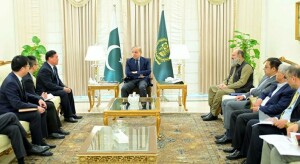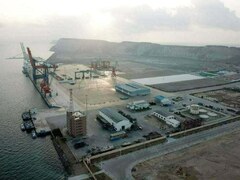The National Assembly is the highest representative body, which reflects the will and aspirations of the people of Pakistan. Similar is the status of a provincial assembly in a province. Senate, being a symbol of unity of the federating units has its own utility for the country as a whole.
It is, therefore, of utmost importance that the impugned suspension of the above democratic institutions is examined with great care and caution, otherwise it would adversely affect the democratic process in the country, which may cause instability, impair the economic growth and resultantly prove detrimental to the general well-being of the people."
The PCO 1999 and/or Proclamation of Emergency dated 14th October, 1999 was validated by the Supreme Court of Pakistan for a transitional period of three years, the relevant portion of the Supra Judgement is as follows:-
"Effect of action of Armed Forces was not that legal order in the country had been completely suppressed or destroyed, but it was merely a Constitutional deviation for a transitional period so as to enable the Chief Executive of Pakistan to achieve his declared objectives." [PP.1219, 1220, 1222] QQ & BBB]"
Three years time from 12-10-1999 to 12-10-2002 was granted to the Chief Executive to exercise his power(s), in pursuant of PCO, 1999 and proclamation of Emergency dated 14th October, 1999 by the full bench of apex Court of Pakistan, the relevant paras runs as under:-
"Supreme Court, after having regard to all the relevant factors involved allowed three years' period to the Chief Executive of Pakistan with effect from the date of the Army take-over ie 12-10-1999 for achieving his declared objectives ---- Chief Executive of Pakistan shall appoint a date, not later than 90 days before the expiry of three years, for holding a general election to the National Assembly and the Provincial Assemblies and the Senate of Pakistan."
[PP 1219, 1220, 1222] QQ & BBB] The date of 25th October, 2002 is also beyond the period of three years, when the powers to amend an/or promulgate the laws lapsed as well as after the general elections on 10th October, 2002 and/or when the elected National Assembly was very much in existence, the so-called validation to the Ordinance LXXXV of 2005 dated 25th October, 2005 is beyond the scope and/or spirit of Zafar Ali Shah's case as well as LFO dated 21st, August, 2002, which is the primary basis of 17th amendment of the Constitution, 1973.
Further articles 89 and 270AA are conflicting to each other and the normal procedure of legislation in respect of Section 489.F was not adopted which is the creator of constitution, 1973.
The wisdom and/or reasons to give validation to Ordinance XXXVII of 2002 cannot be accepted, in the backdrop of XVII the Constitutional Amendments.
ARTICLE 270-AA OF THE 17TH CONSTITUTIONAL AMENDMENT: according to which the Ordinance(s) after the period of 14th October till 31st December 2003 has been validated/protected and/or the Article 4 of LFO 2002 and Notification dated 16.11.2002 reviving the Article 89 of the Constitution, 1973 pursuant to Article 4 of LFO 2002 is inconsistent, contradictory and/or against the myths, spirits and/or rules laid down by the Supreme Court in the reported judgement of Zafar Ali Shah's case reported in PLD 2002 SC 689.
Even the reported judgement P.Cr. K. T 2005 684 the time framework of three years more period awarded to the Chief Executive/President of Pakistan and/or Legal prosecution/validation to CPO, 1999 and/or Proclamation of Emergency dated 14th October, 1999 for a transitional period from 12th October, 1999 to 12th October, 2002 was not discussed.
The protection allowed to the Ordinances in 17th Constitutional Amendments beyond the period of 12th October , 2002 is inconsistent and/or contradictory to the rules framed in Zafar Ali Shah's case as well as against the spirits and/or practices of the Constitution as well as Parliament.
And/or till the date of 31st December, 2003 from 25th February, 2003, all the proceedings/FIRs lodged and/or actions taken under Section 489-F PPC in view of expiry of the Ordinance are void in any case and the dictum laid down in the reported judgement 2005 KLR Cr. Cases 39 is legal and/or valid as no protection was existing in respect of said Ordinance, the judgement reported as 2005 KLR Cr. Cases 39 was also delivered in the same period, when even the 17th Constitutional Amendment was not existing.
The extension of validity date from 21st August, 2002 to 31st December, 2003 by virtue of 17th Constitutional Amendment is due to mistake and/or misconception and as the age for the appointment of judges of High Court was not reduced from 45 to 40, the same mistake has been done to that article.
It is a Constitutional requirement that if the National Assembly is in existence but not in session the President can promulgate the Ordinance, having the life of 120 days. Further after the revival of Constitution and general elections, the Ordinance can be promulgated under Article 89 of the Constitution, 1973 and/or not otherwise.
Even after the general election issuance of any Presidential Ordinance under PCO 1999 and/proclamation of Emergency dated 14th October 1999 instead of article 89 is not warranted.
The instant Ordinance dated 25-10-2005 is not covered by LFO which protected the legislation between 12-10-1999 to 21-08-2002 but the Ordinance promulgated after the general elections dated 10th October, 2005 cannot be protected by any stroke of 17th Constitutional Amendment.
That if the President or Parliament is intended to re-enforce or re-promulgate the statute/ordinance regarding the 489-F PPC, then ambiguity in the above present disputed law(s) relating to of Section 489-F PPC may be removed and it will be proper that as in India Chapter XVII and sections 138, 139, 140, 141, 142 were inserted in the Indian Negotiable Instrument Act, 1881 by promulgation of Banking/Public Financial Institutions and Negotiable Instruments Laws (Amendment) Act, (Act 66 of 1988 (Act 66 of 1988) and/or introduction of Chapter XVII of the Indian Instrument Negotiable Act, 1881 which provides filing of the criminal complaint before the Metropolitan Magistrate and a 15-day notice under Section 138 is required by the complainant to make payment of dishonoured Cheque.
The proposed amendments are that in Pakistan proper modifications like in India in Negotiable Instruments, Act, 1881 be made by inserting Chapter XVII and the Sessions judges be empowered to entertain the direct criminal complaint, the stale cheques as well as dishonoured cheques referred to above will not be included in the clause of dishonoured cheques in which criminal remedy will be available.
Further in both statures the Financial Institutes (Recovery of Finances) Ordinance, 2001 and/or in the proposed amendment in Negotiable Instrument Act, 1881 punishment should be similar in which is proposed one year and the fine should be determined not exceeding to the twice or double of the cheque's amount.
Section 138 of Indian Negotiable Instruments Act, 1881 as inserted in 1988 provides the punishment with imprisonment for a term which may extend to one year, or with fine which may extend to twice of the amount of the cheque or with both.
It is also provided that the cheque should not be a "stale cheque" and the payee or the holder in due course of the cheque, as the case may be, makes a demand for the payment of the said amount of money by giving a notice, in writing, to the drawer of the cheque, within fifteen days of the receipt of information by him from the bank regarding the return of the cheque as unpaid.
Further the drawer of such cheque fails to make the payment of the said amount of money to the payee or, as the case may be, to the holder in due course of time, within fifteen days of the receipt of the said notice.
The Offence should by Compoundable, non-cognisable, bailable under the proposed amendments and/or proposed/suggested Criminal Laws regarding dishonoured cheques which will replace Section 489-F PPC and/or Section 20 Sub Section (4),(5) and (6) of Financial Institution(s) (Recovery of Finance) Ordinance, 2001.
(Concluded)
BR100
7,870
Increased By
32 (0.41%)
BR30
25,583
Increased By
123.1 (0.48%)
KSE100
75,335
Increased By
404.3 (0.54%)
KSE30
24,214
Increased By
68.4 (0.28%)





















Comments
Comments are closed.